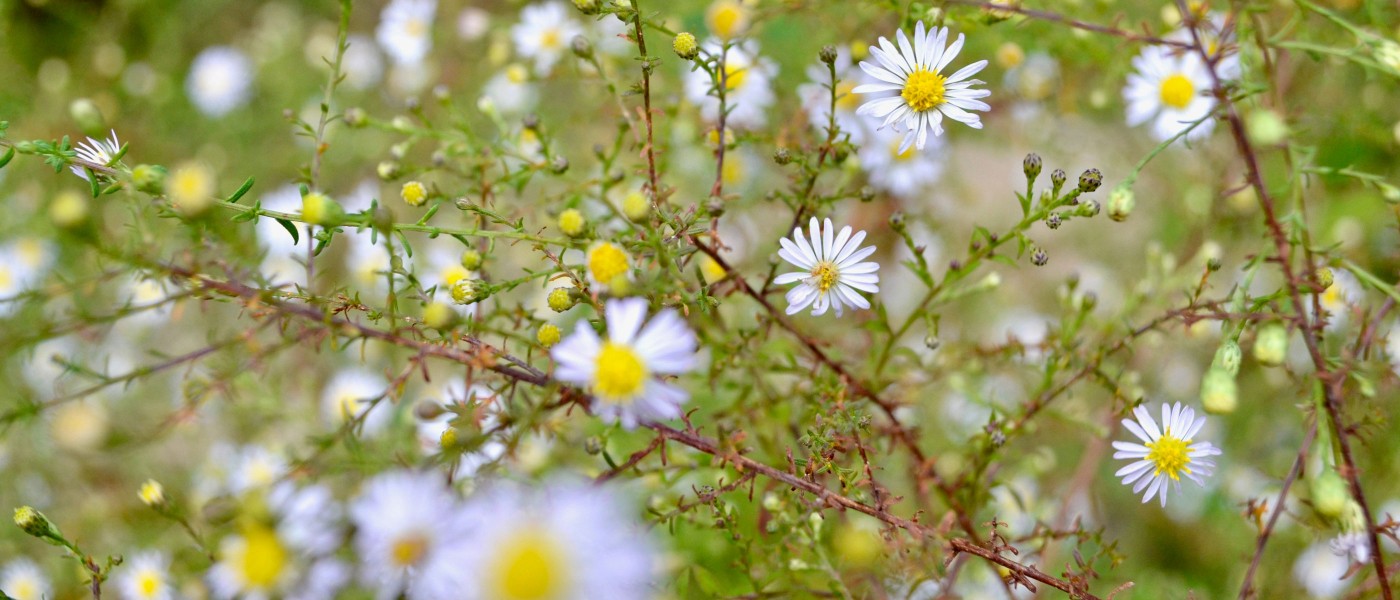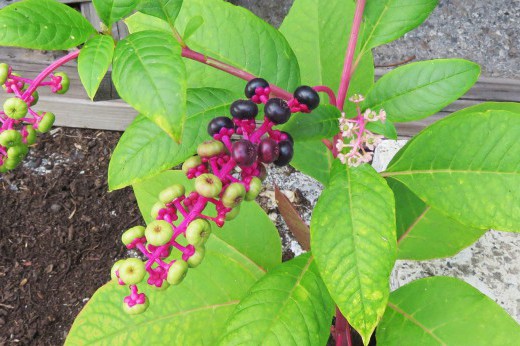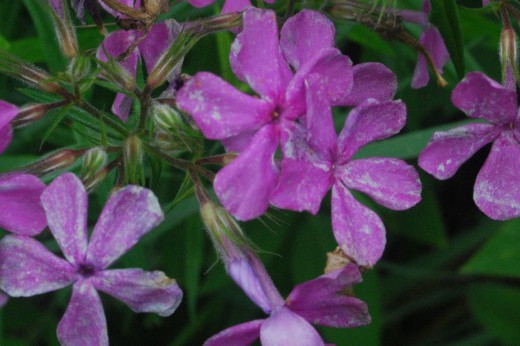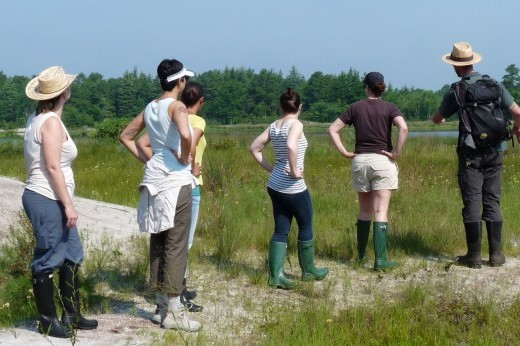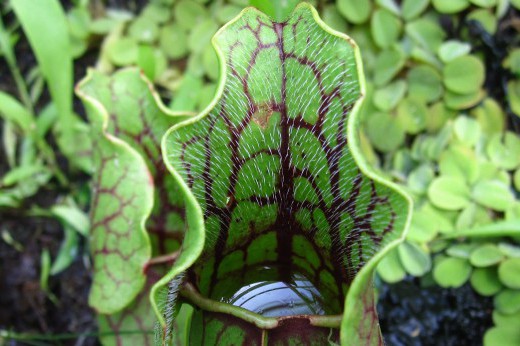Topics
Special Series
Native Flora
-
Weed of the Month: Pokeweed
Pokeweed is considered poisonous from root to fruit, but that doesn't stop birds—and some people—from eating it.
By Saara Nafici -
Native Groundcovers: Sustainable Choices for Sun and Shade
Two of the most common groundcovers, English ivy and periwinkle, are invasive. But there are many native plants that make wonderful and sustainable alternatives.
By Claire Sawyers -
A Bird Habitat Garden—Plant Choices and Design Tips
Wild bird populations are threatened by habitat loss, global warming, collisions with buildings, and much more. You can help ease their plight by turning your city garden, or a portion of it, into a pesticide-free bird sanctuary.
By Joan McDonald -
Collecting in the Wild
The plants growing in the Native Flora Garden expansion were collected in the wild by BBG horticulturists and botanists along with our partners at the Greenbelt Native Plant Center.
By Uli Lorimer -
A Fern Grows in Brooklyn
Rare, federally listed hart's tongue fern is growing a BBG storm drain.
By Sarah Schmidt -
New Native Flora Garden Grows Local
When it comes to living and eating more sustainably, we’ve all heard, “Go local.” Brooklyn Botanic Garden will embody this edict when the Native Flora Garden expansion opens later this spring.
By Nina Browne -
What Gives Leaves Their Fall Color?
As the days get shorter and the nights get cooler, leaves are losing their green and turning shades of gold and yellow, orange, red, and purple.
By Kerry Barringer -
Working for Watersheds
As the climate warms, BBG scientists are working in area watersheds to evaluate and understand the condition of these forests.
By Kerry Barringer -
Sarracenia: Native Pitcher Plants
Grow these fascinating carnivorous plants in an outdoor container, and watch how they capture prey.
By Cayleb Long -
Native Bees
Honey bees are from Europe. The bee species native to North America are very different. They can be black, brown, or green, and the vast majority are solitary creatures that nest in cavities or soil. They are also important pollinators and could use your help!
By Elizabeth Peters

